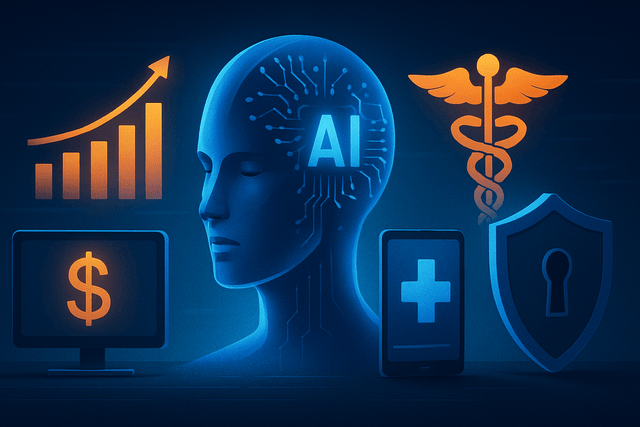The artificial intelligence landscape is experiencing a significant shift as specialized AI applications move beyond general-purpose tools to tackle industry-specific challenges in critical sectors.
In the financial sector, Lloyds Bank introduced Athena, a generative AI tool designed to automate customer service responses, summarize financial reports, and provide compliance insights. The system aims to improve speed, accuracy, and cost-efficiency across banking operations. Financial institutions are increasingly adopting AI-powered fraud detection systems that can analyze transaction patterns in real-time, with recent studies showing that 90% of banks now use AI to combat emerging fraud threats.
The healthcare industry is seeing equally transformative applications. Everlab secured $10 million in funding to expand its AI-driven preventive healthcare platform, which generates personalized diagnostics and health alerts based on continuous biomarker data. Meanwhile, new research demonstrates AI's ability to accurately screen for diabetic retinopathy before symptoms arise, potentially increasing access to vital screenings in underserved areas. SoundHound's AI-powered voice assistants are gaining traction in clinical settings, streamlining patient intake and appointment scheduling.
In the cybersecurity realm, Google recently unveiled several advanced AI security tools, including Big Sleep, an AI agent that actively searches for unknown security vulnerabilities in software. The system has already discovered multiple real-world vulnerabilities, including a critical SQLite vulnerability (CVE-2025-6965). Other security innovations include FACADE, an AI-based system for insider threat detection, and Timesketch, which uses AI to accelerate incident response by automating initial forensic investigations.
Experts predict these cross-industry AI applications will continue to evolve rapidly. In healthcare, the focus is shifting toward predictive care and early detection. Financial institutions are enhancing customer experiences while strengthening security against increasingly sophisticated AI-powered fraud attempts. And in cybersecurity, the race between defensive and offensive AI capabilities is accelerating, with new tools being developed to combat emerging threats like deepfakes and AI-generated phishing attacks.
As these specialized AI applications mature, they're creating new opportunities for efficiency, personalization, and security across critical sectors, while also raising important questions about regulation, privacy, and the changing nature of human-AI collaboration in professional environments.

